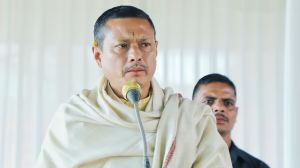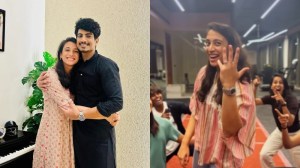Amicus curiae questions chargesheet
As the amicus curiae appointed in the Sohrabuddin Sheikh fake encounter case and the victim’s brother attacked the role of the Gujarat Government in the investigation

As the amicus curiae appointed in the Sohrabuddin Sheikh fake encounter case and the victim’s brother attacked the role of the Gujarat Government in the investigation, the Supreme Court on Monday allowed the state to directly challenge grant of anticipatory bail to Superintendent of Police (Crime) N K Amin for his alleged involvement in the conspiracy.
The state Government also informed the court that it would immediately suspend Amin.
Additional Solicitor General Gopal Subramanium, appointed by the court to assist in the case, raised doubts about the chargesheet filed by the state and questioned why the Gujarat police had not opposed anticipatory bail to Amin. “A potential accused”, Amin is alleged to have been present when the body of Kauser Bi, Sohrabuddin’s wife, was cremated.
Subramanium also pointed out that the chargesheet was silent on seven policemen of Andhra Pradesh who were part of the joint police team that picked up Sohrabuddin, his wife and a third person. “We have to test the investigation on some angle. There is something severely amiss,” Subramanium said, urging the Bench headed by Justice Tarun Chaterjee to continue monitoring the case.
He also referred to the confusion over the third person picked up by the police. While the FIR stated that the third person was Tulsiram Prajapati, the chargesheet identified him as one Kalimuddin.
Sohrabuddin’s brother alleged that the history of the state in recent years shows that “any accused who is Hindu is released but Muslims are not released”.
Appearing on behalf of him, senior counsel Dushyant Dave also contended that there is a pattern in the encounter killings, with people from the minority community being targeted and branded as member of terrorist outfits.
Attorney General Milon K Banerji, who was present during the proceedings, again submitted that the court has unlimited power under Article 142 to look into such cases and would continue to do so.
Meanwhile, hearing another petition, the Supreme Court on Monday sought a response from the Ministry of Home Affairs and several states on the steps being taken to check fake encounters.
The notices were issued by a Bench comprising Chief Justice K G Balakrishnan and Justice R V Reveendran on a petition filed by a Hyderabad-based advocate.



- 01
- 02
- 03
- 04
- 05




























